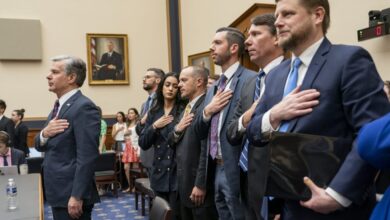Biden’s war on working women

Women are losing a crucial right thanks to unnecessary Washington interference: the right to work independently.
Recently, the Department of Labor (DOL) finalized new regulations to determine the status of independent contractors which strikes at the heart of self-employment and flexibility—something valued most by women.
Under the new DOL rule, self-employed workers and the businesses that hire them must now navigate a confusing six-factor economic reality test to determine their classification as either an employee or an independent contractor under the Fair Labor Standards Act.
Previously, the more independent contractor-friendly rule established during the Trump administration focused on just two core factors —the level of control over work, such as setting schedules, and the opportunity for profit or loss.
Confirmation of both was enough to establish independent status.
The new Biden rule replaces the clarity of the Trump policy with an opaque, subjective standard that bureaucrats in labor offices will be required to determine.
The White House claims the effort is aimed at companies that purposely misclassify workers to save money.
But given the administration’s bent toward categorizing workers as employees (in an effort to ramp up unionization), the prospects of retaining their independent status look bleak for the nation’s 70+ million independent workers.
Over half of freelancers are women.
They earn full-time, part-time, or occasional incomes through various occupations that include—but are not limited to—the gig economy.
Think about virtual assistants, marketing professionals, transcriptionists, makeup artists, entertainers, and medical assistants.
They depend on flexibility to work around their priorities, such as raising families, caring for aging parents and sick spouses, or managing their own illnesses and disabilities.
Self-employment delivers other benefits as well, such as greater satisfaction, better health outcomes, and even more security than traditional jobs.
Women own 12 million businesses, 90% of which are “nonemployer” businesses that don’t rely on formal workers.
Many secure services from independent contractors, particularly from other women.
Women-owned businesses are now at risk if they are forced to hire freelance workers as employees, which studies say can add upwards of 30% to their operating costs.
Consider Monica Wyman, a breast cancer survivor and California business owner.
Her florist/event planning business allowed her to provide for her family and raise three kids while fighting for her life.
Because her work was seasonal and sporadic, Wyman could not afford to hire traditional staff.
She contracted with other moms for events as needed.
“I would rotate in different moms who I knew wanted a few hours here and there. It worked really well for all of us,” she says.
Unfortunately, Wyman’s story illustrates how policies like the new DOL rule could devastate to freelancing women and small businesses.
Her business model was placed at risk when California passed Assembly Bill 5 (AB5) in 2019, codifying a restrictive test to determine worker status that led to scores of independent contractors being reclassified.
Self-employed workers in over 600 occupations lost incomes, contracts, gigs, and their livelihoods.
The DOL lamented that it could not mimic the California test, but the new rule will come close. Unlike in California, there are no carveouts for the over 100 special interests — ranging from doctors to recording artists — who managed to secure exemptions from AB5.
New research led by Mercatus Center economist Liya Palagashvili quantifies the damage that the California Assembly and Governor Gavin Newsom did to their workforce with AB5.
Self-employment fell by 10.5%, and overall employment fell by 4.4%, especially in occupations overrepresented by self-employed workers.
Also, it found no robust evidence that reclassified workers were ultimately hired by their clients as employees, refuting that common pushback.
Businesses are likely to hear from labor lawyers and human resources firms—which ironically may be staffed by independent contractors—about compliance with the new DOL regulations.
Whether Congress overturns this rule—and we hope they do—or groups are successful in suing the DOL to stop its enactment, businesses are likely to preemptively cut back or relieve their independent contractor workforce.
That may be the Biden administration’s goal.
And this will hurt female workers the hardest.
We can’t paint it otherwise.
The DOL rule is anti-self-employment, anti-small business, and anti-woman.
Patrice Onwuka is the director of the Center for Economic Opportunity at Independent Women’s Forum (iwf.org/CEO) and co-host of WMAL’s O’Connor & Company.




